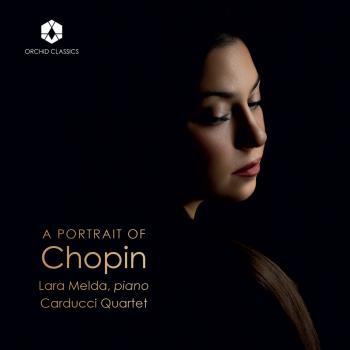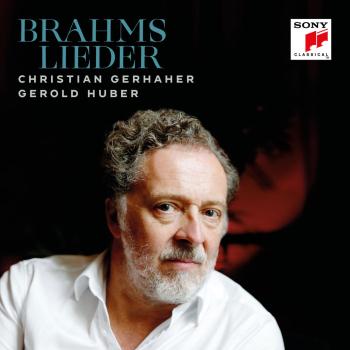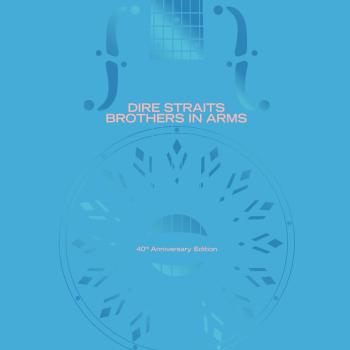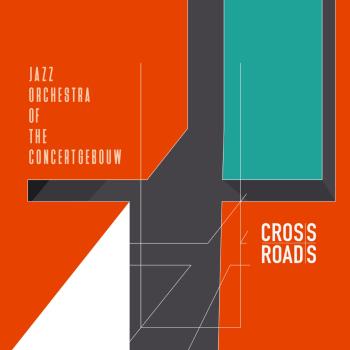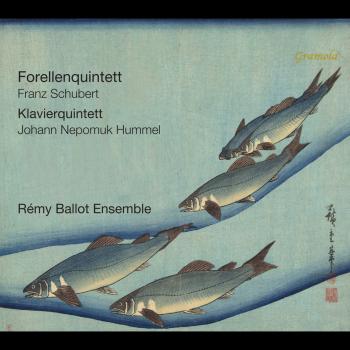
Sibelius: Symphonies Nos. 6 and 7, and Tapiola The Atlanta Symphony Orchestra & Robert Spano
Album info
Album-Release:
HRA-Release:
26.12.2013
Label: ASO Media
Genre: Classical
Subgenre: Orchestral
Artist: The Atlanta Symphony Orchestra & Robert Spano
Composer: Jean Sibelius (1865–1957)
Album including Album cover Booklet (PDF)
- 1 I. Allegro molto moderato 08:34
- 2 II. Allegretto moderato 05:22
- 3 III. Poco vivace 04:08
- 4 IV. Allegro molto 09:32
- 5 Symphony No. 7 in C Major, Op. 105 22:17
- 6 Tapiola, Op. 112 19:45
Info for Sibelius: Symphonies Nos. 6 and 7, and Tapiola
Fans of the great Finnish composer Jean Sibelius have reason to rejoice this holiday season with the Grammy® Award-winning Atlanta Symphony Orchestra.
„Robert Spano and Atlanta already have delivered a very impressive version of the Kullervo Symphony for Telarc–a work that the conductor championed during his tenure in Brooklyn as well–and this new disc from the orchestra’s house label confirms his credentials as a convincing Sibelius interpreter. This is particularly true of the tricky Sixth Symphony, an elusive work that has confounded many of the composer’s strongest proponents. Spano sets a perfect tempo for the opening movement, sufficient to capture the tranquility of the opening while allowing the quicker main section to move smartly forward. Technically the entire movement proceeds in a single tempo, but this has proven almost impossible to convey in practice. Spano manages to do it, even to the point of making the coda sound natural and less inconclusive than usual.
The slow movement poses few interpretive problems, but I also applaud Spano’s moderate pacing of the scherzo, which allows so much ear-catching detail and rhythmic interplay to come across clearly. The finale also presents major challenges of pacing (even Berglund never seemed comfortable with it), and Spano solves them as well as anyone, particularly in the culminating passage for strings toward the end–so beautifully played and balanced between the melody and its chugging accompaniment. It’s just about as fine a performance as we’re likely to hear.
The Seventh, too, has an inevitability about it that’s very powerful. The whole, single movement grows organically from the opening string chorale in this performance, with particularly well executed transitions between sections. The lengthy pastorale interlude never turns static, as it often can in those places where Sibelius pauses meditatively, while the closing pages bring the right feeling of culmination with just a touch of open-endedness (a function of Spano’s timing of the very last chord).
I had concerns about the length of Tapiola: nearly 20 minutes. Sibelius preferred a quicker tempo, but such is the clarity of texture and accuracy of rhythm that it never actually sounds slow. My only quibble is that the storm at the end really needs greater intensity and a less metronomic quality to the string figurations, but otherwise the performance is very evocative and atmospheric (that swift central bit, with rapid violin figurations and tiny woodwind and timpani fanfares, is especially magical).
There are a couple of moments–the approach to the recapitulation in the first movement of the Sixth, for example–where a bit more definition of the orchestra’s lower end would have been ideal, but the sonics are otherwise quite impressive. The producer, Elaine Martone, was responsible for many of the orchestra’s prior Telarc recordings, and she knows what she’s doing. These were not “in concert” sessions, apparently, but good, old fashioned, “studio” recordings, and so much the better. Putting Sibelius’ last three major concert works together on a single disc was a great idea, too. All in all, a treat for Sibelians.“ (David Hurwitz, ClassicsToday.com)
Atlanta Symphony Orchestra
Robert Spano, conductor
The Atlanta Symphony Orchestra
currently in its 68th season, consistently affirms its position as one of America’s leading Orchestras by performing great music, presenting great artists, nurturing young talent, and engaging with the community.
The Orchestra is known for the excellence of its live performances, presentations, renowned choruses, and its impressive list of GRAMMY® Award-winning recordings. As the leading cultural organization in the Southeast, the Atlanta Symphony Orchestra serves as the cornerstone for artistic development and music education in the region. Since September 2001, the Orchestra and its audiences have together explored a creative mix of programming, including Theater of a Concert performances, which explore different formats, settings, and enhancements for the musical performance experience. Another example is the Atlanta School of Composers, which reflects Mr. Spano and the Orchestra’s commitment to nurturing and championing music through multi-year partnerships defining a new generation of American composers. Since the beginning of his tenure (to date), Mr. Spano and the Orchestra have performed more than 100 concerts containing contemporary works (composed since 1950). By the end of the 2012-13 season, Mr. Spano and the Orchestra will have performed 16 Orchestra-commissioned world premieres and 14 additional world premieres, including 10 fanfares performed in the 2010-11 season in honor of the 10th anniversary of the artistic partnership between Robert Spano and Donald Runnicles and 10 years of the Atlanta School of Composers.
During its 32-year history with Telarc, the Orchestra and Chorus recorded more than 100 albums and their recordings have won 27 GRAMMY® Awards in categories including Best Classical Album, Best Orchestral Performance, Best Choral Performance, and Best Opera Performance. The Orchestra continues to record regularly on its new in-house label, ASO Media, which demonstrates the Orchestra’s commitment to celebrating classical masterworks while continuing to perform commission, premiere, and record with some of today’s leading composers.
The Atlanta Symphony Orchestra performs more than 200 concerts each year for a combined audience of more than a half million in a full schedule of performances, including educational and community concerts. A recognized leader and supporter of contemporary American music, the Orchestra received the 2007 award for Strongest Commitment to New American Music from the American Society of Composers, Authors, and Publishers. In addition, Music Director Robert Spano was named Musical America 2008 Conductor of the Year. With the opening of the 12,000-seat Verizon Wireless Amphitheatre at Encore Park in May 2008, the Atlanta Symphony Orchestra became the first U.S. orchestra to annually perform and present in its concert hall, and in two amphitheaters. In Summer 2008, the Orchestra celebrated 35 years at legendary Chastain Park Amphitheater, the award-winning 6,500 seat venue in Atlanta, during the Orchestra’s annual Delta Classic Chastain concert series.
Booklet for Sibelius: Symphonies Nos. 6 and 7, and Tapiola

